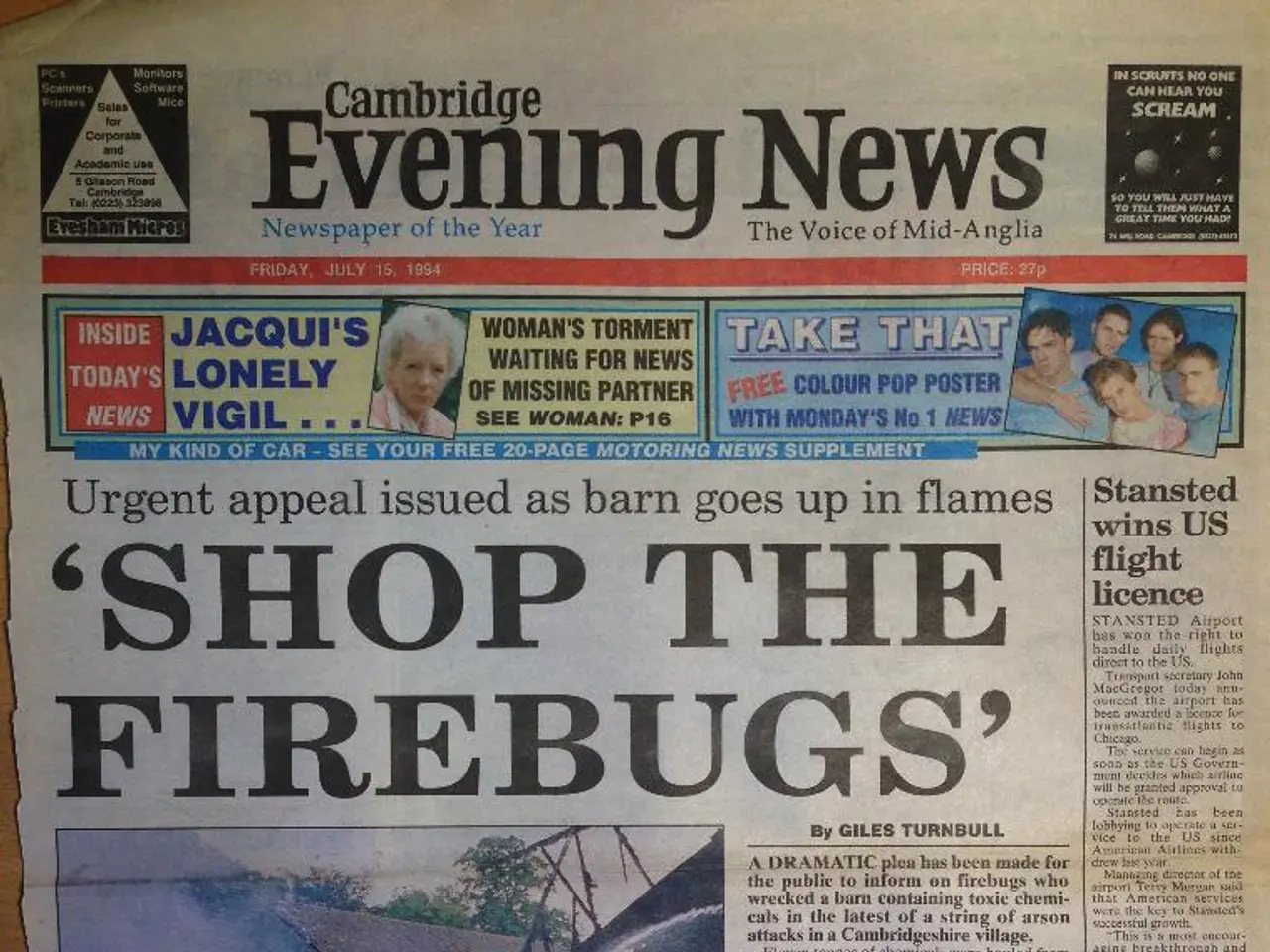Unveiling Strategies for Journalists Navigating Risks in Extremist Coverage
In the heart of Washington D.C., a chilling incident unfolded on Inauguration Day. Ryan Sanchez, a known neo-Nazi, stood outside a local jail, inquiring about freelance journalist Amanda Moore. Moore, a victim of extremism herself, has become a "ghost" due to her stringent safety measures.
Moore's life is shrouded in secrecy. She uses a PO box as her primary address and does not register to vote to maintain a low profile. Despite being known by far-right extremists, she is hated by them. Her sister, unfortunately, has not been so fortunate. The sister was the victim of a swatting incident by an unknown perpetrator, an attack that Moore blames herself for due to her high-profile work.
In North Carolina, another journalist, Jordan Green, faced an extensive harassment campaign backed by a neo-Nazi group he was investigating. The ordeal culminated in six white supremacists standing in front of his home, holding burning traffic flares and making the Nazi salute.
Steven Monacelli, a freelance investigative correspondent for the Texas Observer, has been covering the rise of far-right extremism in Texas for over four years. His diligent work has not gone unnoticed. In 2020, he was visited by police in his Dallas home due to false abuse claims. Monacelli was finalizing an article revealing the identities of individuals running four major neo-Nazi accounts on a popular social media platform, X.
Monacelli and Moore are not alone in their struggles. Local journalists across the nation feel left behind and exposed on the front lines due to the rise of extremism. Daniel Walters, an extremism reporter, argues that local reporters are better equipped to cover extremism due to their understanding of local variants.
However, the new administration is stepping back from federal oversight of extremist groups, leaving these journalists to face the dangers head-on. Despite the risks, both Monacelli and Moore express that they cannot stop reporting on extremism.
Moore takes additional precautions to protect herself. She uses a service to scrub her personal information from the internet and has a stalker. Yet, she continues her work, determined to shine a light on the dark corners of society.
Extremism is no longer a distant problem; it is a local issue that is rapidly gaining momentum nationwide. The views of some extremist groups are going increasingly mainstream, making the work of journalists like Moore and Monacelli more crucial than ever. As they bravely continue their work, we are reminded of the vital role they play in maintaining a free and informed society.
Read also:
- United States tariffs pose a threat to India, necessitating the recruitment of adept negotiators or strategists, similar to those who had influenced Trump's decisions.
- Weekly happenings in the German Federal Parliament (Bundestag)
- Southwest region's most popular posts, accompanied by an inquiry:
- Discussion between Putin and Trump in Alaska could potentially overshadow Ukraine's concerns







